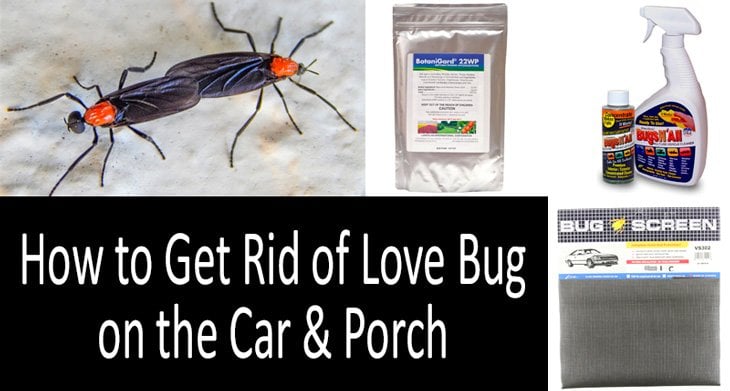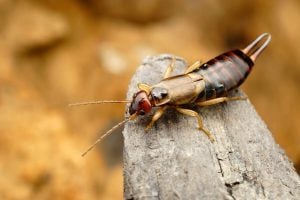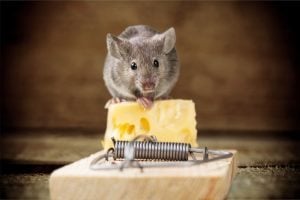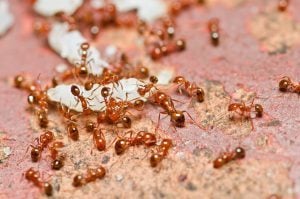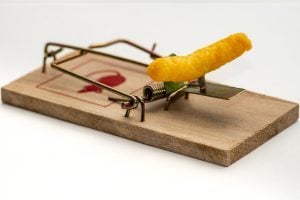Love bugs, also known as double-headed bugs, march flies or honeymoon flies, are most common in the South East of the U.S. They remain together while mating, which can last for days. And this is how love bugs received their name. For homeowners and motorists, love bugs are nuisance pests. They do not bite or carry diseases. Nor are they poisonous. Perhaps the only noticeable damage caused by love bugs occurs when they splatter on the car. In particular, their acidic bodies can spoil the car paint when “fried” in the sun.
So how to get rid of love bugs? Well, let’s start with the fact that there are two sorts of problems: love bugs smashed on the car and love bugs swarming in your yard. In both cases, chemical insecticides are believed to be ineffective. You cannot treat all areas along the highway to keep bugs away, nor is any repellent effective when applied to a vehicle.
When it comes to getting rid of love bugs in the yard, chemical insecticides have only a short-term effect. The problem is that love bugs will immediately return after the treatment is over. Besides, this is not environmentally-friendly. Love bugs, like other beneficial pollinators, are active in the daytime, meaning you will kill not only them but honeybees as well.
Here we have for you have the four most efficient techniques to use.
|
1. FIA VS302 Universal Bra Style Bug Screen |
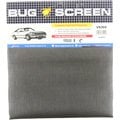 Check the current price |
|
2. Bugs N All – Best All Purpose Interior & Exterior Vehicle Cleaner & Bug Remover |
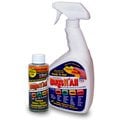 Check the current price |
|
3. Wondercide Natural Indoor Pest Control Spray |
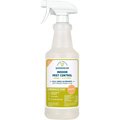 Check the current price |
|
4. BotaniGard 22WP Biological Insecticide |
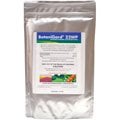 Check the current price |
Best Way to Get Rid of Love Bugs on the Car
These insects are attracted to heat and exhaust fumes produced by vehicles, which they confuse with the smell of decaying plant debris. That is why love bugs are frequently fly along highways, splattering in cars’ windshield. As a result, these pests reduce road visibility and damage the vehicle paint because of the acidity of their bodies and eggs. Additionally, love bugs can clog radiators, which may result in the engine overheating.
Now, what can you do?
- Remove squashed lovebugs manually by wetting them and then gently scraping them away. This method is pretty labor-intensive as you will have to scrub for up to 20 minutes. Keep in mind that the longer the dead love bugs remain on your car, the harder they are to remove. Therefore, you should wash them off as soon as possible.
- Use a hose or any high-pressure washer to get rid of love bugs fast. A good option is the M MINGLE Replacement Pressure Washer Gun that comes with an extension wand and 5 different nozzle tips. Compatible with most well-known brands of pressure washers, it is a universal, easy-to-install accessory. The gun’s length can be changed from 8.8 inches to 25 inches or 40 inches, while nozzle tips offer various spray angles ranging from 0 to 65 degrees.
- Apply cleaners formulated to remove bugs from the exterior of a car. We recommend buying the Bugs N All – Best All Purpose Interior & Exterior Vehicle Cleaner & Bug Remover. The product eliminates organic materials from vehicles and works by releasing the acids contained in them. Made without harsh chemicals or toxic ingredients, the solution removes bug remains in a minute as well as releases grease and dirt in a matter of seconds. No scrubbing is needed: just apply the cleaner to the surface and wait for a minute. After the solution has dissolved the dead bugs and grease, all you will need to do is just wash the area and wipe it dry. The liquid is biodegradable and safe for paint and decals.
For better results, use a special bug sponge. The VIKING 845100 Mesh Bug Sponge is made from unique microfiber that will eliminate even the most stubborn bug debris from both glass and painted surfaces. With this sponge, you will not need to exert yourself to scrub the car exterior. This cloth based on advanced microfiber technology will do the job for you. As a reference, Viking is a famous brand in automotive accessories, so you can rely on its products.
Preventive measures
- Use a hood air deflector or and screening like the FIA VS302 Universal Bra Style Bug Screen. Designed specifically to protect the car grill from bugs and all sorts of debris, this item will significantly reduce the number of dead love bugs on your car. With a weight of less than 5 ounces, the mesh screening measures 20” by 76”. The item comes with hooks and straps, so you will install it easily within minutes. Made from heavy-duty material, the product is resistant to tears and cuts. Buyers say that this FIA screen does keep a lot of bugs from etching into the car paint.
- Apply protective sprays to your car exterior. Products like the WD-40 Company 300012 Specialist Silicone Spray will prevent love bugs from sticking hard to the surface. Upon application, the solution turns into a stain-resistant film, providing protection not only from bugs but also from the adverse effects of high temperatures and elements. The product is waterproof and is suitable for all types of surfaces, including metal, plastic, and rubber.
How to Get Rid of Love Bugs Around the House
Applying insecticides is considered ineffective by scientists because of love bug abundance. These insects come to highways from neighboring areas and are almost impossible to control. With the onset of the season, love bugs are virtually everywhere, so spraying them with chemicals is useless. Let alone the fact that it is a waste of money. And yet, there are several things you can do to get rid of love bugs in your yard or at least make them less annoying.
- Spray citrus-based insecticides around your house. Focus on light-colored or freshly painted surfaces as they typically attract love bugs. Treating doors and other entry points will keep these insects from getting inside. Opt for natural solutions as they can be sprayed generously both indoors and outdoors, without posing health risks to humans and pets. But keep in mind that cats tend to be allergic to citrus.
The Wondercide Natural Indoor Pest Control Spray can both repel and kill love bugs. Made in the U.S., the product is free of harmful chemicals and can be used even in the kitchen. Based on the oils of lemongrass, cedarwood, and sesame, the spray repels insects with a combination of smells. All ingredients are naturally derived and safe for kids. Furthermore, these are food-grade ingredients. One 32-ounce spray treats up to 400 square feet. To repel insects, apply it twice a day over the course of a week. As a bug killer, the insecticide works on contact and should be applied directly to insects.
- Citronella candles will help get rid of love bugs on the porch. While being designed primarily to keep mosquitoes away, citronella candles have a repellent effect on love bugs, too. Jean Godawa, a science educator from the University of Toronto, says that candles containing citronella oil do work but only as a short-term solution. Besides, they have a mild action and should not be heavily relied upon. Nevertheless, citronella candles could be a great option for a bug-free barbecue, given you are dealing with a limited number of love bugs.
The YYCH Citronella Scented Candle Scent seems to be the best choice. For less than $20, you get a set of 12 citronella candles in mini tin buckets. You can distribute them around the yard to cover all areas where love bugs can be. When it comes to these insects, placing multiple small candles is more efficient than using one huge bucket with citronella oil. The major advantage of this product is that it is absolutely safe and non-toxic. Made with pure natural oil of lemongrass, the candles can burn up to 12 hours. They emit a pleasant natural citronella fragrance, providing you with a comfortable outdoor environment.
- Use biological control to reduce the love bug population in your yard. There are multiple fungi species that kill these insects. However, most of them affect only larvae. The only exception is the Beauveria bassiana species that kills both larvae and adults. According to researchers at the University of Florida, this fungus can cut the love bug population by up to a third.
We recommend applying the BotaniGard 22WP Biological Insecticide. The active ingredient in this product is Beauveria bassiana strain GHA (22%). It is free of chemicals and can be safely used around plants and vegetables. Formulated as a wettable powder, it is easy to apply and store. The BotaniGard is often used by professionals as it is a natural and safe way to control insecticide-resistant bugs. The product is great for both indoor and outdoor use, but it takes time to see the results.
- Mowing the lawn is needed to make your area unfavorable for love bugs to lay eggs. That said, it is important to cut off the top of the grass so that there will be less thatch on the lawn. It is thatch where larvae of love bugs develop. You may try the BLACK+DECKER 3-in-1 String Trimmer/Edger & Lawn Mower that comes with an AFS automatic feed system. Made by a trusted manufacturer, this electric mower will cost you less than $100. The machine features a powerful 6.5-amp motor and 12-inch cutting swath. More importantly, you can adjust the cutting height from 1.6 to 2.4 inches. While being compact, this product is versatile and can be used to mow, trim, or edge grass.
How to get rid of love bugs with baby oil
Getting rid of love bugs with a white bowl filled with baby oil is perhaps the most popular natural remedy. And yes, it works. This is a trap that takes advantage of love bug biology and their weaknesses. To begin with, you will need a big white bowl, which will serve as an attractant. As we have mentioned above, large light-colored spots draw in love bugs. Then, fill the bowl with water and add some baby oil like the Johnson’s Baby Oil Enriched With Shea & Cocoa Butter. Make sure that the container is filled to the rim.
In fact, this method serves two purposes. First, the bowl will attract these insects, keeping them away from other places in your yard. From homeowners’ experience, such a trap can attract dozens of bugs. Secondly, as the bugs swarm around the bowl, some of them will drop in and won’t be able to get out. This is actually what the baby oil is for. It weighs the bugs down, so they eventually die from drowning.
Rules for Getting Rid of Love Bugs: Effectiveness Based on Scientific Evidence
Generally speaking, entomologists concur in one point — chemical insecticides are useless in love bug control. According to Professor Norman C. Leppla, while insecticides can kill love bugs, it does not make sense to use them. They will emerge as soon as you stop spraying and all your efforts will be in vain. Therefore, using chemicals is a waste of money and. Even worse, you will expose yourself, other people, and pets to toxic residue left by insecticides, but you will not solve the problem. As Norman put it, the best thing you can do is just avoid these insects when the season begins.
Researchers from Clemson University warn that insecticides can negatively affect beneficial insects such as honeybees. The thing is that love bugs, like other pollinators, are active in the daytime. Therefore, you will have to apply insecticides at the time when bees are active. That is why neither government nor local authorities take any measures to control love bugs with chemicals. They leave the task of killing love bugs to their natural enemies, mainly birds.
And yet, the scientists have offered some beneficial advice to motorists on how to avoid these insects. Lovebugs are most active at day time, so try to plan your driving trips in the evening or early in the morning before 10:00 a.m. Slower driving will reduce the number of bugs smashed on the windshield. A screen protecting the vehicle’s grill is also going to minimize the damage from this kind of pests. Remove bugs from the car as soon as possible, otherwise, the damage may become permanent.
Expert Opinion: Nash Turley, Ecologist, University of Central Florida

Nash Turley, Ecologist, University of Central Florida
Nash Turley is an ecologist and postdoctoral fellow at the Department of Biology of the University of Central Florida. His area of interest includes the ecology and evolution of insects and plants. Nash has been studying biodiversity in natural communities and interactions between animals and plants.
In this video, Nash shares his opinion on why it is a bad idea to kill love bugs with insecticides.
“I know a lot of people find love bugs kind of icky or annoying in some way. But I think it is important to realize that they are not going away. They are here to stay and they live in and around the environments we create. They do very well in pastures, lawns, and irrigated areas. We have created lots of environments that are great for them. They are really like a human-associated species now. So we have stuck with them for better or worse. But they are not a bad species to have around. They serve some functions and do not really harm us in any way. They do not bite, they do not sting, they are not poisonous. And I think it is important just to realize that they are a species we live with and come to appreciate them. And trying to get rid of them is just a bad idea. Spraying insecticides is just gonna have a negative impact on all sorts of other things”.

